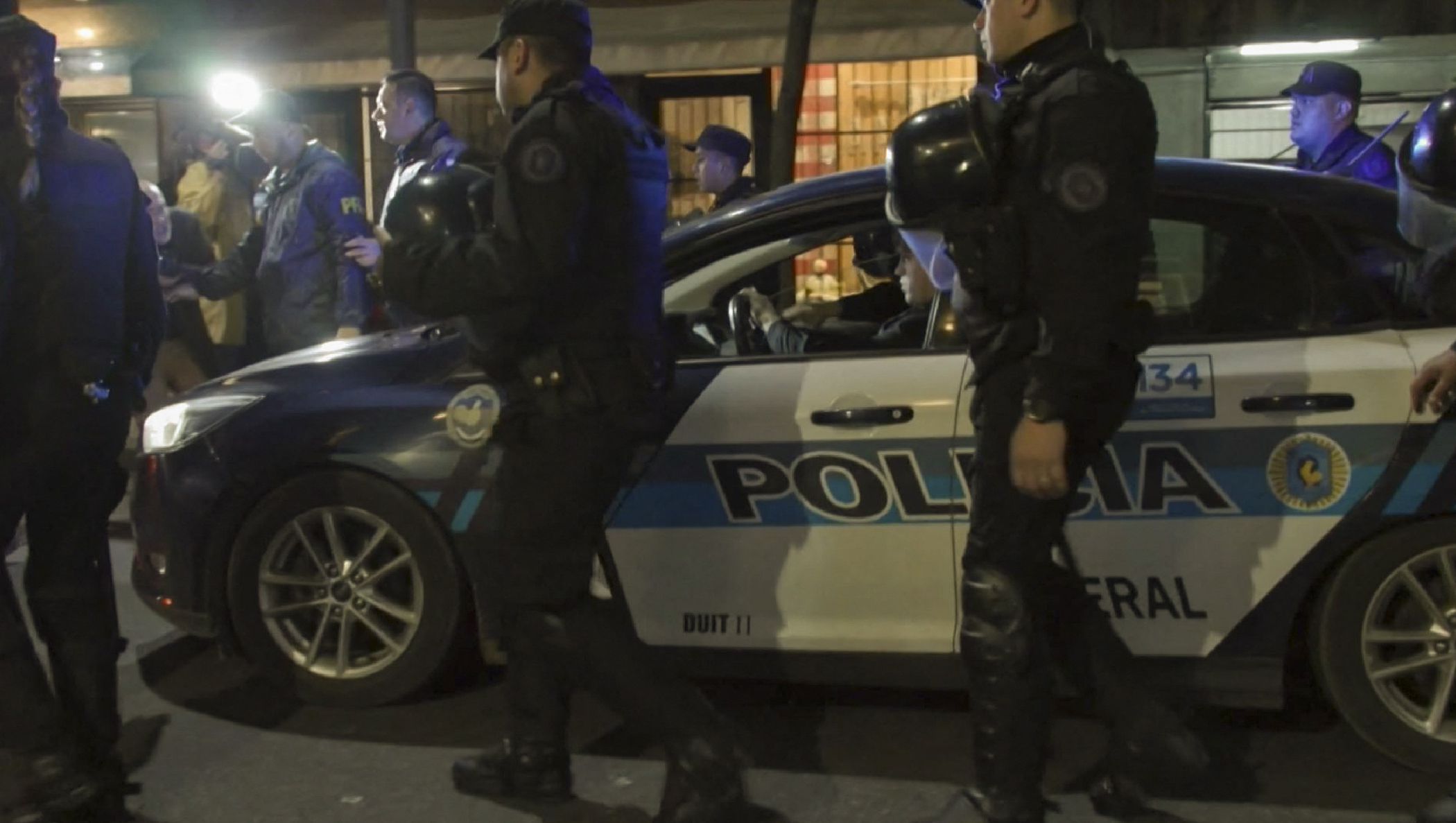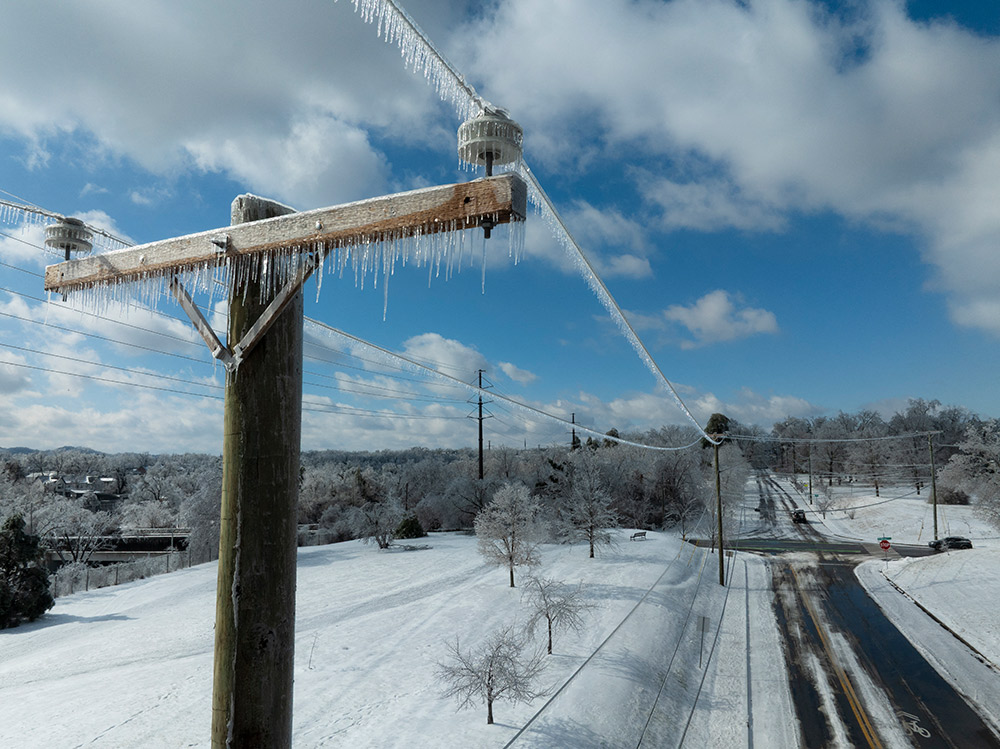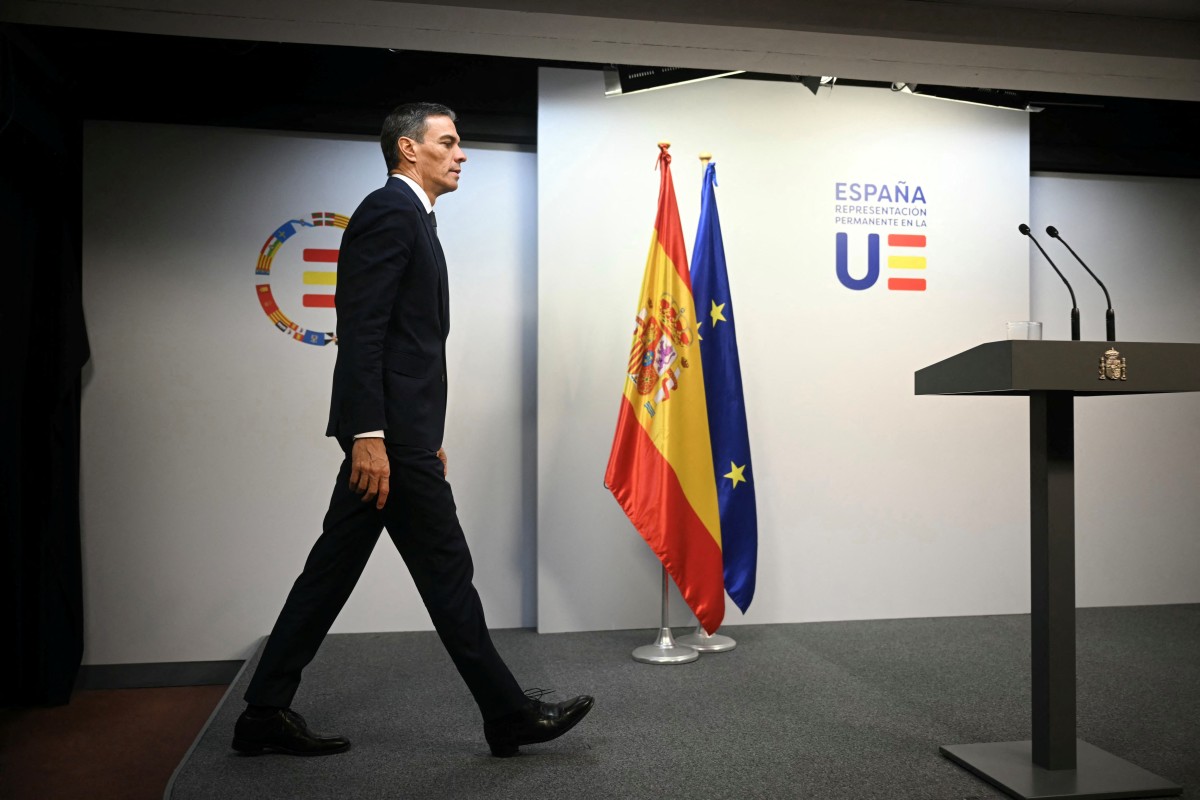International
Argentine: Cristina Kirchner, actrice et victime de la crispation politique

AFP || par Philippe BERNES-LASSERRE
Adulée comme une “mère” politique à la fibre sociale, ou honnie comme une populiste corrompue, Cristina Kirchner reste, sept ans après avoir quitté la présidence argentine, une figure incontournable et influente d’une politique polarisée, crispée, qui l’a vue jeudi échapper à un attentat.
Depuis 11 jours, la vice-présidente vit sous la menace de 12 ans de prison et d’une inéligibilité à vie, requis lors d’un procès pour corruption, dans une affaire de marchés publics dans son fief de Santa Cruz (sud), pendant ses présidences (2007-2015). Des pertes pour l’Etat évaluées à 5,2 milliards de pesos (38 millions de dollars) selon l’accusation.
Pour autant depuis 11 jours, c’est à s’y méprendre la péroniste de centre-gauche qui a l’intitiative, ressoudant sur son sort un bloc gouvernemental pourtant divisé sur l’économie, laissant la presse de tous bords suspendue à ses faits et gestes, et semant la zizanie dans l’opposition sur la stratégie idoine, à un an d’une présidentielle.
Avec défi, aplomb, elle s’est posée en victime d’”un procès politique” par une justice selon elle instrumentalisée par l’opposition de droite. Qui, comme elle l’a clamé à ses partisans venus la chanter à son domicile, veut “exterminer” le péronisme” dont ils “haïssent l’amour et la joie”.
Veuve du président Nestor Kirchner (2003-2007) qui a laissé chez nombre d’Argentins la gratitude d’une normalité retrouvée après le traumatisme de la “grande crise” de 2001, Cristina a longtemps cultivé le souvenir de son mari, décédé en 2010 et dans le sillage duquel elle a été élue en 2007, puis réélue en 2011.
– Diabolisée, diabolisante –
Tous deux s’étaient connus en fac de droit. Puis devenus avocats, ont vécu et travaillé ensemble. Dans la province de Santa Cruz en Patagonie, leur fief électoral, puis dans la capitale, après l’élection de Nestor à la présidence.
Leur projet était d’alterner à la tête de l’Argentine. “Nous pensions qu’il était nécessaire d’assurer dans le temps un processus politique vertueux de transformation du pays”, écrivait-elle dans son livre “Sincèrement”.
Au pouvoir, Mme Kirchner a imposé un contrôle des changes et des restrictions aux importations, s’est brouillée avec les puissants producteurs agricoles, a mené une politique sociale généreuse, et était proche de Lula au Brésil et d’Hugo Chavez au Venezuela.
Ses mandats ont vu aussi s’approuver le mariage homosexuel, une loi sur l’autodétermination de genre, une écoute accrue à la cause des femmes, faisant de l’Argentine une pionnière en Amérique latine.
Tour a tour combative, émouvante, cabotine, sarcastique, “CFK”, qui ne dédaigne pas les tailleurs de renom, est aussi une oratrice avérée qui éclipse régulièrement à l’applaudimètre “son” président, Alberto Fernandez. Et reste pour nombre d’Argentins, de milieux populaires mais pas seulement, associée à un volontarisme social, une forme de “quoi qu’il en coûte”.
Mais pour ses adversaires, dont son grand rival le libéral Mauricio Macri, qui lui succéda la présidence (2015-2019), “CFK” est l’incarnation d’un clientélisme redistributif pathologique, qui maintient l’Argentine dans un marasme économique. Et n’est pas la dernière à diaboliser ses opposants.
M. Macri, qui a promptement et sans réserve condamné l’attentat jeudi, estimait il y cinq jours encore, après des heurts entre police et partians de Cristina, qu’elle est “seule responsable des débordements et du trouble à l’ordre publique (…) bafouant les institutions, se croyant au-dessus des lois, se plaçant en victime pour provoquer le chaos”.
– “Cristina incontournable” –
Ces dernières années, Cristina Kirchner a été mise en cause dans une dizaine de dossiers distincts, entre pots-de-vins, blanchiment de fonds ou entrave à la justice. Elle a bénéficié de non-lieux, mais cinq procédures restent en cours.
Et pour spectaculaire et fusionnelle que soit sa relation avec un noyau dur de fidèles, son étoile a pâli. Si elle peut revendiquer au mieux un quart de l’électorat, le rejet qu’elle suscite est bien plus large, conviennent maints analystes.
“Elle ne peut gagner une élection nationale (…) elle le sait et tout le péronisme le sait”, analysait pour l’AFP Raul Aragon. Mais dans une élection primaire, Cristina “pèse ces 25%”, et dans son camp, “aucun ticket (présidentiel en 2023) ne pourra se faire sans l’accord de Cristina”. Comme en 2019.
“Cristina incontournable”, résumait cette semaine Infobae, site d’information argentin habituellement critique du gouvernement. Un constat que l’attentat de jeudi n’est pas près d’altérer.
International
Winter Storm Fern Leaves 30 Dead and Over One Million Without Power Across the U.S.

The massive winter storm Fern, bringing polar temperatures, battered large portions of the United States for a third consecutive day on Monday, leaving at least 30 people dead, more than one million households without electricity, and thousands of flights grounded.
In the Great Lakes region, residents awoke to extreme cold, with temperatures dropping below -20°C. Forecasts indicate that conditions are expected to worsen in the coming days as an Arctic air mass moves south, particularly across the northern Great Plains and other central regions, where wind chills could plunge to -45°C, temperatures capable of causing frostbite within minutes.
Across the country, heavy snowfall exceeding 30 centimeters in roughly 20 states triggered widespread power outages. According to PowerOutage.com, nearly 800,000 customers remained without electricity on Monday morning, most of them in the southern United States.
In Tennessee, where ice brought down power lines, approximately 250,000 customers were still without power. Outages also affected more than 150,000 customers in Mississippi and over 100,000 in Louisiana, as utility crews struggled to restore service amid dangerous conditions.
International
Spain approves plan to regularize up to 500,000 migrants in Historic Shift

In November 2024, Spanish Prime Minister Pedro Sánchez announced a reform of the country’s immigration regulations aimed at regularizing 300,000 migrants per year over a three-year period, in an effort to counter population aging in a country where births have fallen by 25.6% since 2014, according to official data.
Going against the trend in much of Europe, Spain’s left-wing government has now approved an exceptional migrant regularization plan that could benefit up to 500,000 people, most of them from Latin America.
The measure will allow the regularization of around “half a million people” who have been living in Spain for at least five months, arrived before December 31, 2025, and have no criminal record, Migration Minister Elma Saiz explained on public television.
The plan, approved on Tuesday by the Council of Ministers, establishes that applications will be processed between April and June 30, enabling beneficiaries to work in any sector and anywhere in the country, Saiz said.
“Today is a historic day for our country. We are strengthening a migration model based on human rights, integration, and one that is compatible with economic growth and social cohesion,” the minister later stated at a press conference.
The socialist government of Pedro Sánchez stands out within the European Union for its migration policy, contrasting with the tightening of immigration measures across much of the bloc amid pressure from far-right movements.
Central America
Honduras swears in conservative president Asfura after disputed election

Conservative politician Nasry Asfura assumed the presidency of Honduras on Tuesday with an agenda closely aligned with the United States, a shift that could strain the country’s relationship with China as he seeks to confront the economic and security challenges facing the poorest and most violent nation in Central America.
Asfura’s rise to power, backed by U.S. President Donald Trump, marks the end of four years of left-wing rule and secures Trump another regional ally amid the advance of conservative governments in Chile, Bolivia, Peru, and Argentina.
The 67-year-old former mayor and construction businessman was sworn in during an austere ceremony at the National Congress, following a tightly contested election marred by opposition allegations of fraud and Trump’s threat to cut U.S. aid if his preferred candidate did not prevail.
Grateful for Washington’s support, Asfura—who is of Palestinian descent—traveled to the United States to meet with Secretary of State Marco Rubio, before visiting Israeli Prime Minister Benjamin Netanyahu.
“We need to strengthen relations with our most important trading partner,” Asfura said after being declared the winner of the November 30 election by a narrow margin, following a tense vote count that lasted just over three weeks.
-

 Central America5 days ago
Central America5 days agoGuatemala’s president rules out negotiations with inmates after prison riots
-

 Central America2 days ago
Central America2 days agoGuatemala seizes over a ton of cocaine hidden in flour at Pacific port
-

 International4 days ago
International4 days agoTrump-Era Defense Plan Prioritizes Border Security and Scales Back Global Commitments
-

 Internacionales5 days ago
Internacionales5 days agoMajor winter storm threatens “catastrophic” ice and snow across much of the U.S.
-

 International4 days ago
International4 days agoBogotá and Quito Seek Dialogue After Tariffs and Power Cut Escalate Tensions
-

 International3 days ago
International3 days agoDelcy Rodríguez seeks political agreements after Maduro’s ouster
-

 International5 days ago
International5 days agoGuatemala considers sending high-risk gang members to military prisons
-

 International2 days ago
International2 days agoHistoric snowstorm paralyzes Toronto after 60 centimeters of snow
-

 International2 days ago
International2 days agoSpain’s irregular migrant population rises to 840,000, study finds
-

 International3 days ago
International3 days agoFederal immigration agents kill man in Minneapolis, sparking protests and outrage
-

 International5 days ago
International5 days agoRights group says over 5,000 killed in Iran protests, mostly civilians
-

 Central America23 hours ago
Central America23 hours agoGuatemala Police Arrest Prison Guard Caught in the Act of Extortion
-

 Sin categoría23 hours ago
Sin categoría23 hours agoEight Killed in Series of Armed Attacks in Ecuador’s Manabí Province
-

 International23 hours ago
International23 hours agoWinter Storm Fern Leaves 30 Dead and Over One Million Without Power Across the U.S.
-

 Central America23 hours ago
Central America23 hours agoHonduras swears in conservative president Asfura after disputed election
-

 International23 hours ago
International23 hours agoDoomsday clock moves to 85 seconds before midnight amid rising global risks
-

 International2 days ago
International2 days agoRights group says nearly 6,000 killed in Iran protest crackdown
-

 Central America23 hours ago
Central America23 hours agoBukele leads public trust rankings as UCA survey highlights gains in security
-

 International23 hours ago
International23 hours agoSpain approves plan to regularize up to 500,000 migrants in Historic Shift
-

 International2 days ago
International2 days agoVenezuela frees at least 80 political prisoners, NGO says
-

 Sin categoría23 hours ago
Sin categoría23 hours agoEl Salvador Launches Fourth Year of Ocean Mission to Protect Marine Ecosystems
-

 International2 days ago
International2 days agoEU launches new probe into X over AI-generated fake nude images
-

 International2 days ago
International2 days agoSevere winter storm grips U.S., leaves multiple dead as extreme cold persists
-

 International2 days ago
International2 days agoFrance debates ban on social media for children under 15


























